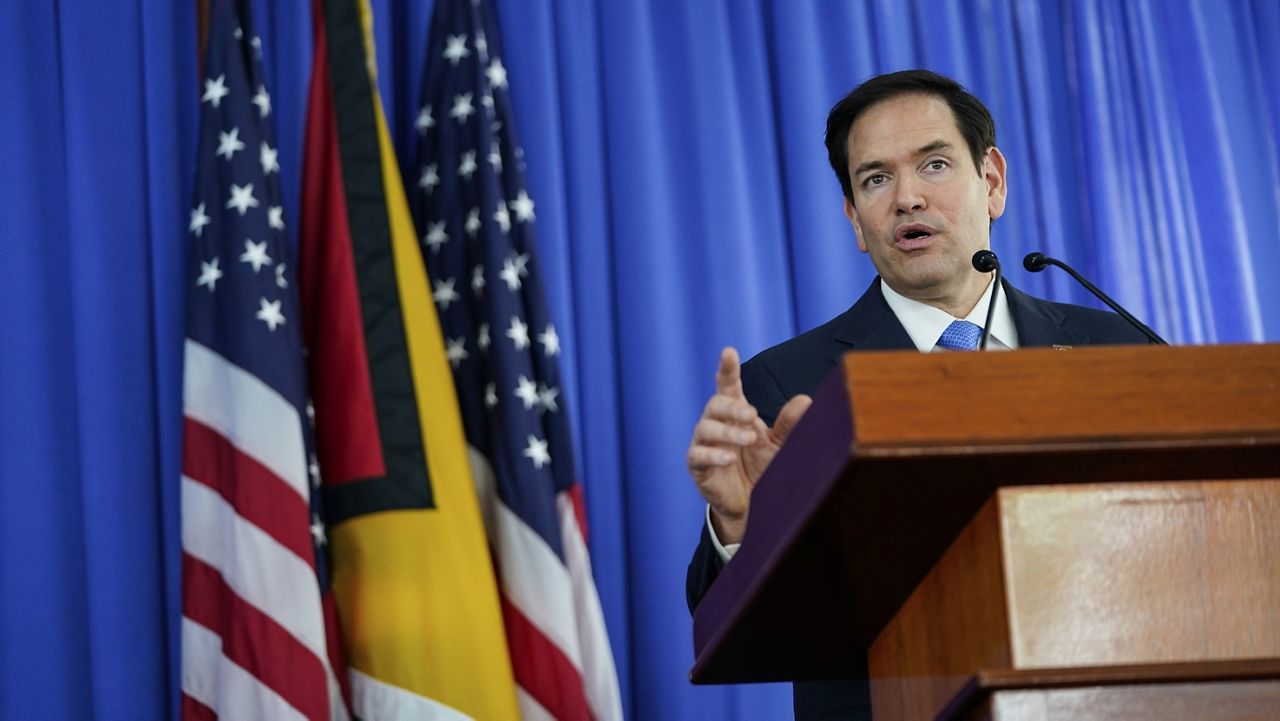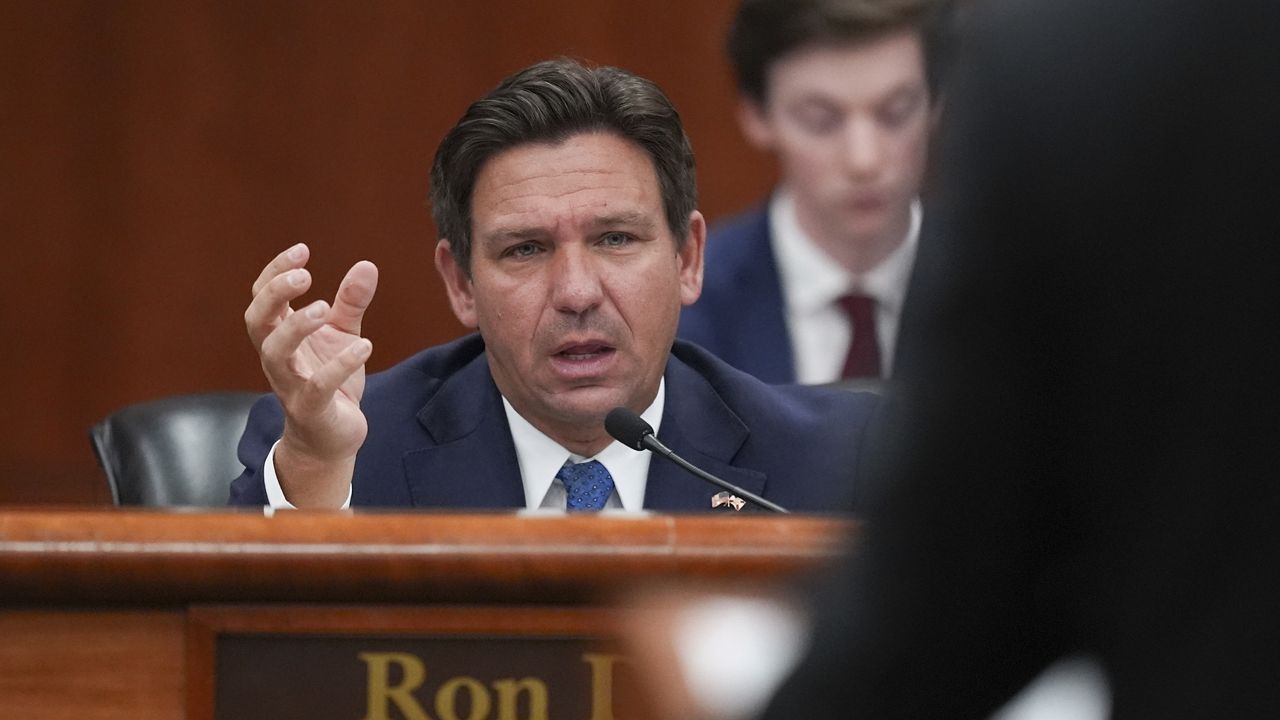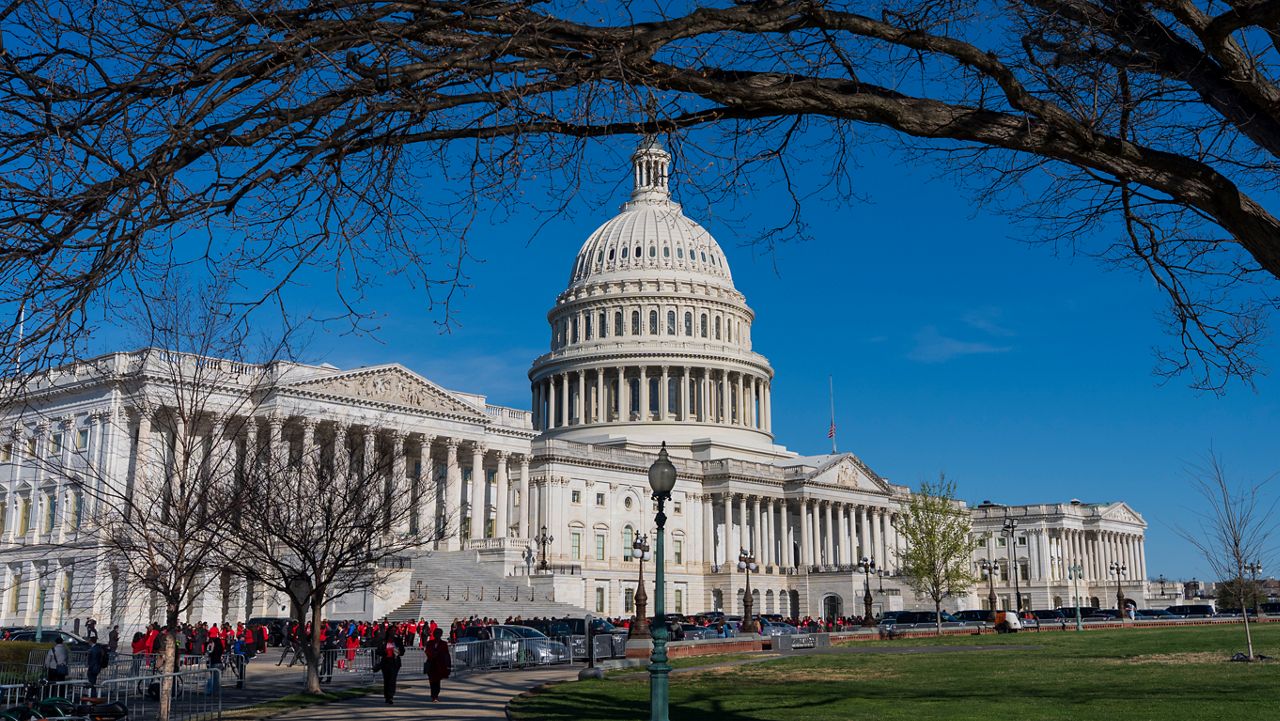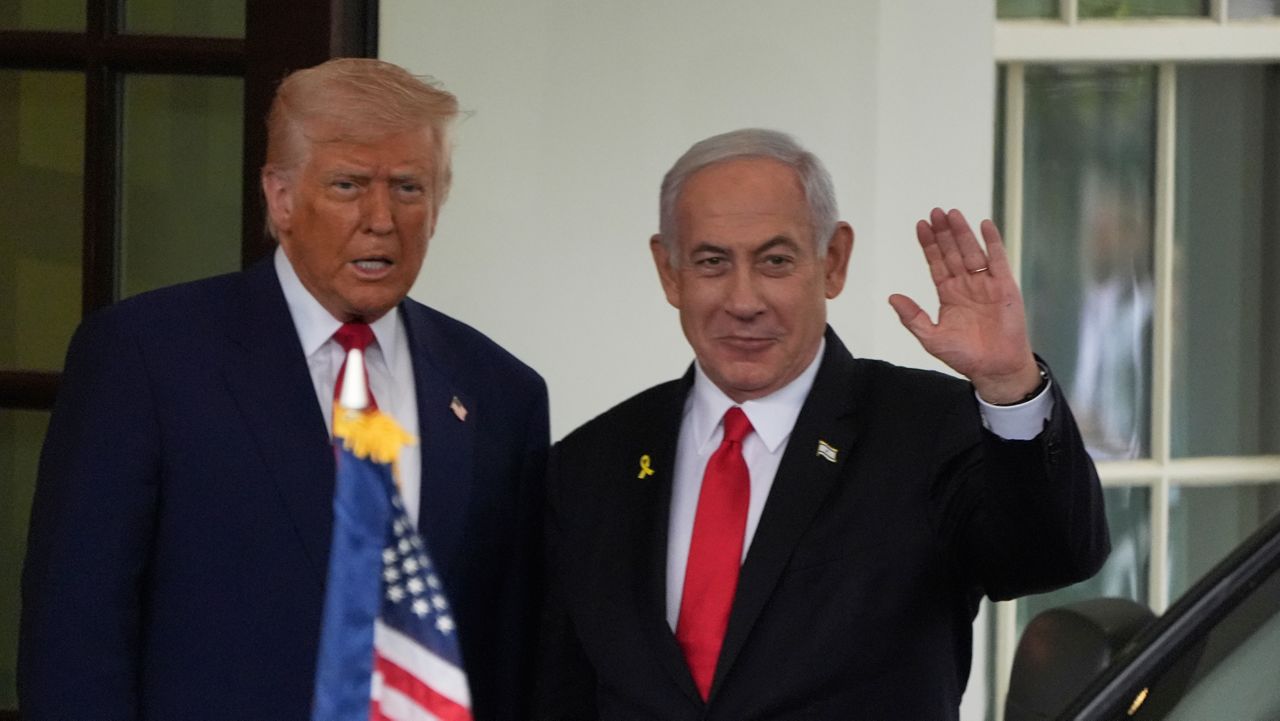The White House confirms tariffs on Mexico, Canada and China will take effect Saturday, and the deadline for federal employees to accept a buyout offer is looming.
Stories in this Episode of Political Connections
- Trump's tariffs on Mexico, Canada and China will take effect Saturday, White House confirms
- Trump offering federal workers buyouts with about 8 months' pay in effort to shrink government
Trump's tariffs on Mexico, Canada and China will take effect Saturday, White House confirms
President Donald Trump’s long-pledged tariffs on China, Canada and Mexico will take effect Saturday, White House press secretary Karoline Leavitt confirmed during Friday’s White House news briefing.
“I was just with the president in the Oval Office, and I can confirm that tomorrow, the Feb. 1 deadline that President Trump put into place in a statement several weeks ago continues (tariffs will be imposed),” Leavitt said, calling a report the tariffs will begin March 1 instead "false."
Trump will impose a 25% tariff on goods from Mexico and Canada while those from China will see an additional 10% tax, Leavitt reiterated, calling the move “promises made and promises kept by the president.”
Trump made his proposed tariffs on foreign goods a central part of his economic and trade agenda pitch to voters on the campaign trail in 2024. Despite signing a flurry of executive orders in his first week back in office, fulfilling many of his campaign promises, the long-promised tariffs were not a part of his first actions in the White House. He instead told reporters they would be coming on Feb. 1.
In the Oval Office on Thursday, Trump told reporters he had not made a decision yet on whether oil would be a part of the tariffs. He reiterated his belief that Mexico and Canada have “never been good to us on trade.”
Trump offering federal workers buyouts with about 8 months' pay in effort to shrink government
The Trump administration announced Tuesday that it is offering buyouts to all federal employees who opt to leave their jobs by next week — an unprecedented move to shrink the U.S. government at breakneck speed.
A memo from the Office of Personnel Management, the government's human resources agency, also said it would begin subjecting all federal employees to "enhanced standards of suitability and conduct" and ominously warned of future downsizing. The email sent to millions of employees said those who leave their posts voluntarily will receive about eight months of salary, but they have to choose to do so by Feb. 6.
President Donald Trump has built a political career around promising to disrupt Washington, and vowed that his second administration would go far further in shaking up traditional political norms than his first did. Still, the repercussions of so many government workers being invited to leave their jobs were difficult to calculate.
Katie Miller, who serves on an advisory board to the Department of Government Efficiency, a special Trump administration department headed by Tesla CEO Elon Musk and tasked with shrinking the size of government, posted on X, "This email is being sent to more than TWO MILLION federal employees."
The federal government employed more than 3 million people as of November last year, which accounted for nearly 1.9% of the nation's entire civilian workforce, according to the Pew Research Center. The average tenure for a federal employee is nearly 12 years, according to a Pew analysis of data from OPM.
Even a fraction of the workforce accepting buyouts could send shockwaves through the economy and trigger widespread disruptions throughout society as a whole, triggering wide-ranging — and as yet unknowable — implications for the delivery, timeliness and effectiveness of federal services across the nation.
Untold numbers of front-line health workers in the Veterans Affairs Department, officials who process loans for homebuyers or small businesses, and contractors who help procure the next generation of military weaponry could all head for the exits at once. It could also mean losing experienced food inspectors and scientists who test the water supply — while disrupting everything from air travel and consumer product protections.
In response, American Federation of Government Employees union President Everett Kelley said it should not be viewed as voluntary buyouts, but pressuring workers not considered loyal to the new administration to vacate their jobs.
"Purging the federal government of dedicated career federal employees will have vast, unintended consequences that will cause chaos for the Americans who depend on a functioning federal government," Kelley said in a statement. "Between the flurry of anti-worker executive orders and policies, it is clear that the Trump administration's goal is to turn the federal government into a toxic environment where workers cannot stay even if they want to."











